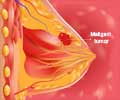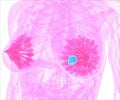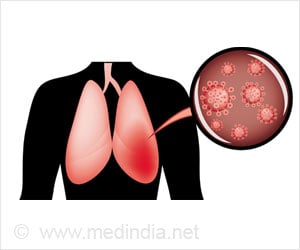Fatty acid inhibitor and chemotherapy combo could enhance treatment outcomes in triple negative breast cancer brain metastases.

Targeting fatty acid synthase in preclinical models of TNBC brain metastases synergizes with SN-38 and impairs invasion
Go to source).
‘Aggressive types of breast cancer like triple-negative breast cancer and HER2-positive breast cancer are more likely to develop metastatic tumors in the brain. #cancertreatment #breast cancer’





Role of Fatty Acid Synthase (FASN) in Cancer
Previous work has shown that the brain microenvironment has very limited lipids available for cancer cells, making it critical for cancer cells to generate their own lipids to survive. “We aimed to exploit this metabolic vulnerability by inhibiting fatty acid synthase, an enzyme that produces fatty acids, in triple negative breast cancer models that have metastasized to the brain,” said Nathan Merrill, Ph.D., assistant professor of hematology/oncology at Michigan Medicine and corresponding author on this paper.Fatty Acid Inhibitor Goes Hand-in-hand with Chemotherapy
In addition to improving the efficacy of chemotherapy, the findings also show that inhibiting fatty acid synthase alone at low doses decreases cells’ ability to move and spread throughout the body.Triple-negative breast cancer, along with HER2-positive breast cancer, carry the greatest risk of spreading to the
To test the fatty acid synthase inhibitors in combination with chemotherapy, Merrill and his team looked for “synergy,” a rigorous way to evaluate if two drugs work better together than separately.
“What really sets our work apart is that we, for the first time, present two new cell lines that were developed from a patient with brain metastases,” said Merrill. “These cell lines are especially unique because they came from the same patient and represent multiple resections of tumor. This is a valuable resource to add to the field.”
Advertisement
“Our lab has previously developed a chip that mimics the brain microenvironment. We want to use this device to better understand what steps in the metastatic cascade are most impacted by fatty acid synthase inhibition,” Merrill said.
More research is needed, but Merrill says he’s hopeful that, pending validation in mice, these results could be translated to improve treatment in patients with triple-negative breast cancer.
Reference:
- Targeting fatty acid synthase in preclinical models of TNBC brain metastases synergizes with SN-38 and impairs invasion - (https://www.nature.com/articles/s41523-024-00656-0)
Source-Eurekalert















